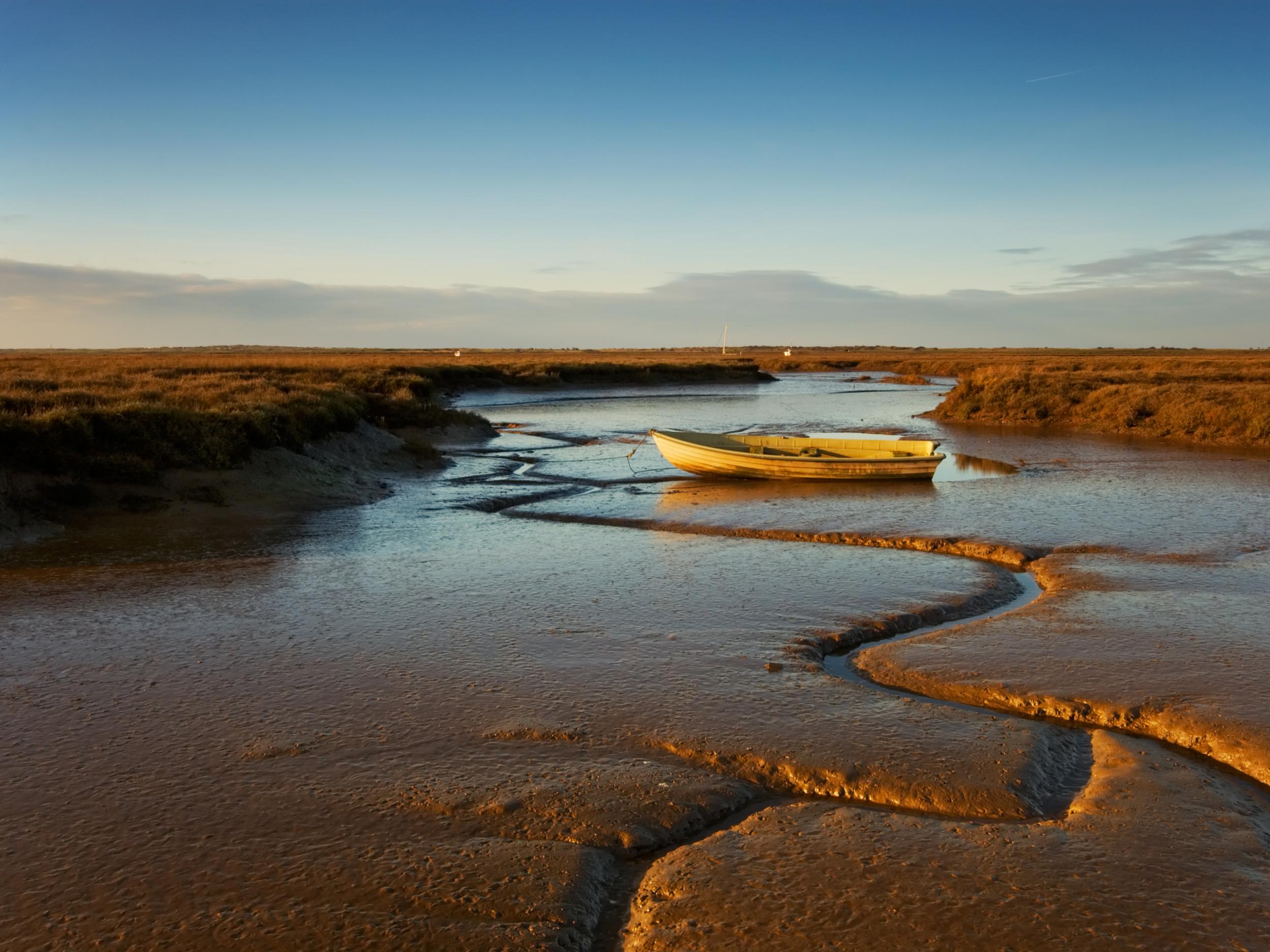Britain’s coastal wetlands will soon vanish under rising sea levels, study finds
Marshlands provide natural defence against storms and flooding, as well as havens for wildlife

Your support helps us to tell the story
From reproductive rights to climate change to Big Tech, The Independent is on the ground when the story is developing. Whether it's investigating the financials of Elon Musk's pro-Trump PAC or producing our latest documentary, 'The A Word', which shines a light on the American women fighting for reproductive rights, we know how important it is to parse out the facts from the messaging.
At such a critical moment in US history, we need reporters on the ground. Your donation allows us to keep sending journalists to speak to both sides of the story.
The Independent is trusted by Americans across the entire political spectrum. And unlike many other quality news outlets, we choose not to lock Americans out of our reporting and analysis with paywalls. We believe quality journalism should be available to everyone, paid for by those who can afford it.
Your support makes all the difference.Marshlands stretching across the southeast coast of England may be overwhelmed by rising sea levels in the coming decades, scientists have warned.
By testing sediment samples, researchers have tracked sea level changes over the past 10,000 years to predict the future of these precious ecosystems.
They found that as seawater encroaches further into these coastal wetlands, marshes around Norfolk and other parts of southeast England could begin to disappear from 2040.
The study claims this trend will gradually spread across the rest of the nation as marshes, which provide critical protection against storms, vanish by the end of the century.
Ice melting in Scotland at the end of the last ice age lifted an enormous weight off that end of the landmass, meaning it is rising slightly and the northern part of the country avoids the tide for longer.
“Sea level rise is inevitable over the next 100 years, as it has been over much of the last 10,000 years. The rates differ across Great Britain and we can model these differences,” said Professor Ian Shennan from Durham University, who coauthored the Nature Communications study.
“Quantifying the vulnerability of marshes to sea level rise is essential if the threat is to be mitigated over the coming decades.”
Over thousands of years rising sea levels have waterlogged the salt marshes, killed the plants growing there and gradually driving them inwards.
“Salt marshes, also called coastal wetlands, are important because they provide vital ecosystem services,” said Professor Benjamin Horton, who led the study from Singapore at Nanyang Technological University.
“They act as a buffer against coastal storms to protect the mainland and a filter for pollutants to decontaminate our fresh water.
“We also lose an important biodiversity hotspot. Salt marshes are important transitional habitats between the ocean and the land, and a nursery area for fish, crustacea and insects.”
Though the future does not look bright for Britain’s coastal wetlands, the Environment Agency has set out its plans to revitalise stretches of the coastline and prevent the loss of these natural defences.
These include allowing areas that were previously protected from the influx of saltwater to flood, by removing artificial defences and letting nature take its course within certain targeted areas.
Join our commenting forum
Join thought-provoking conversations, follow other Independent readers and see their replies
Comments